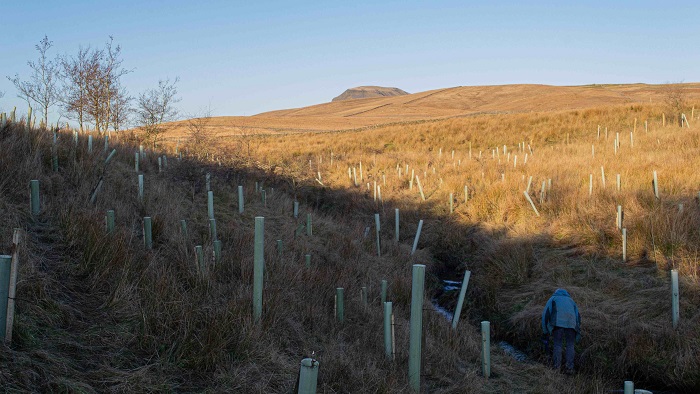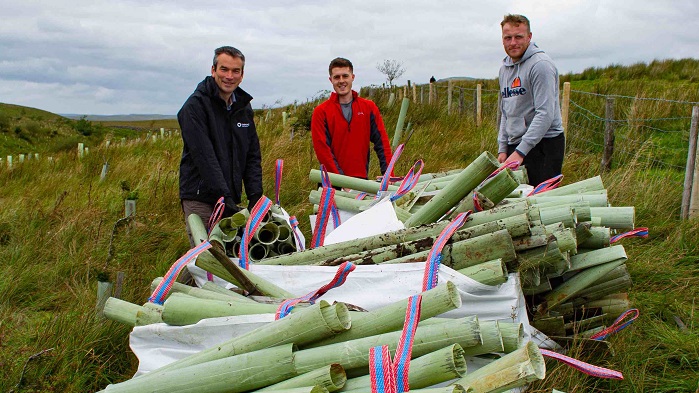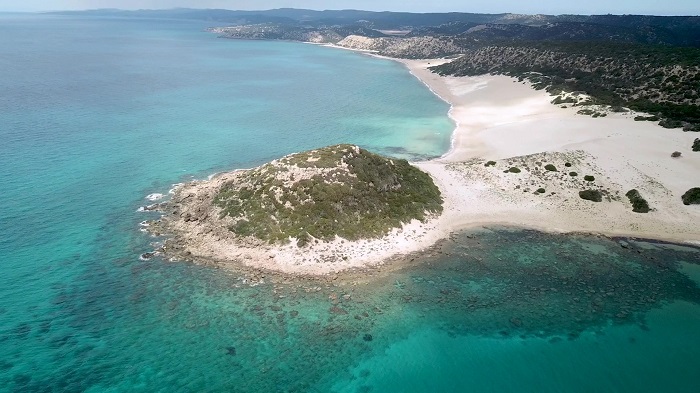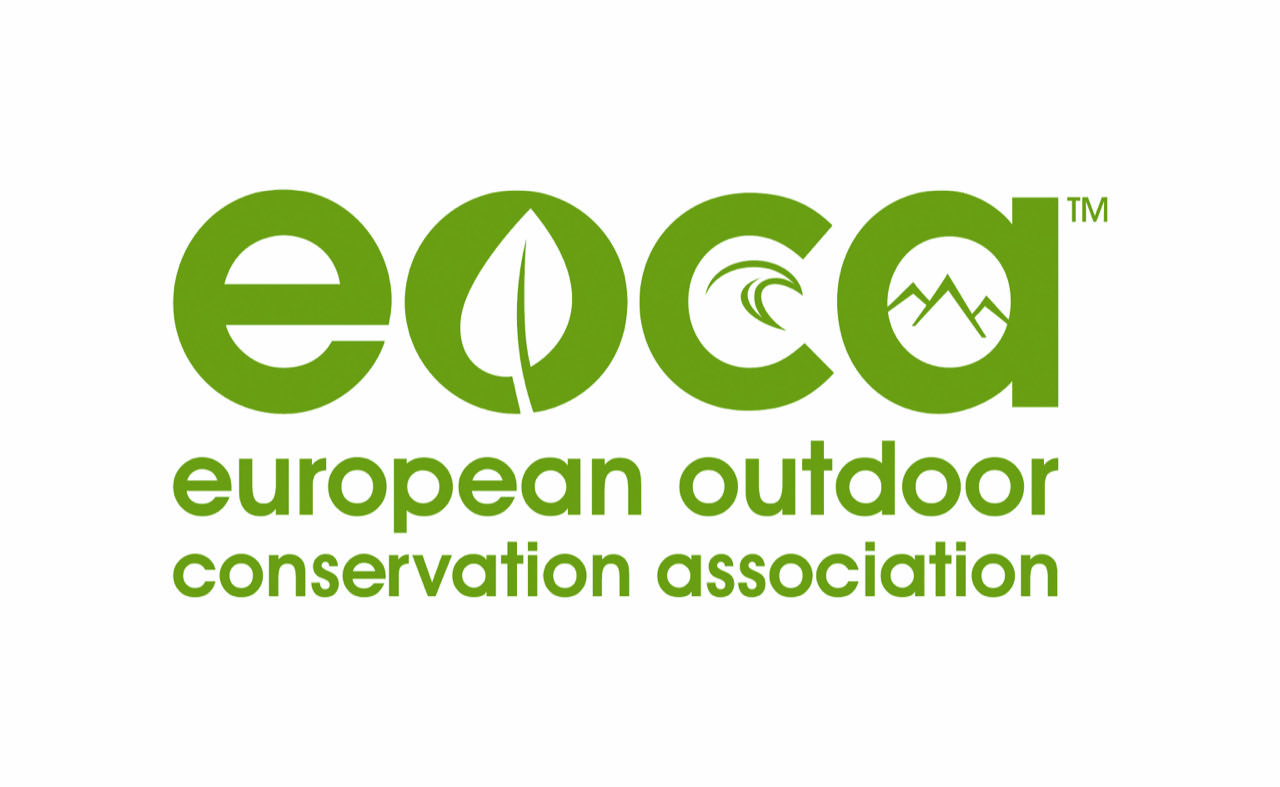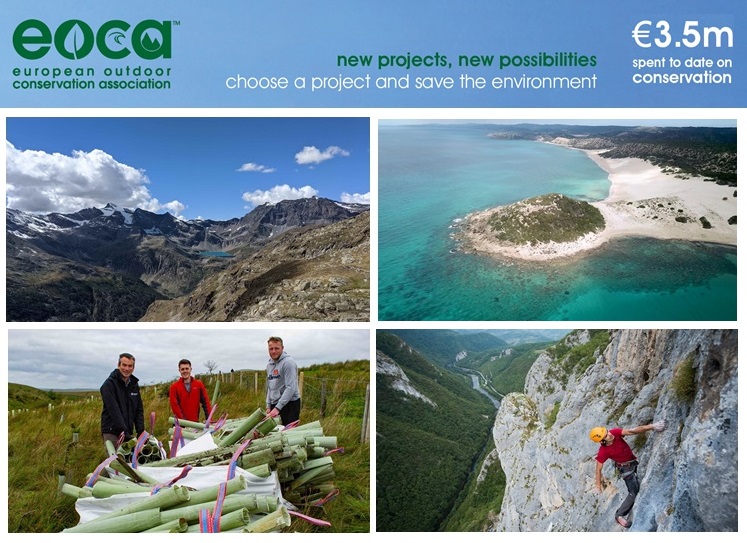
For the 6th year as a media partner of the European Outdoor Conservation Association EOCA, MountainBlog is very happy to host again the autumn EOCA vote for conservation! This will give our readers the chance to help choose which valuable conservation projects EOCA funds this year.
EOCA is a conservation charity which has 159 member companies that pay an annual membership fee which is spent on conservation work around the world.
During July, EOCA was open for applications for funding from organisations looking to implement valuable conservation projects around the world. They received several applications and e have spent their summer reading through all of these applications, assessing them against the EOCA strict guidelines and have produced a shortlist of the projects which best meet the criteria.
Now these projects need your help! From 00.01 (GMT / CET+1) on 8th October to 12.00 noon (GMT/CET+1) on 22nd October, MountainBlog Europe gives the possibility to read the details of the shortlisted 4 projects. Please, take a minute to read though them, choose your favourite and click to vote for it – it is that simple!
The project with the most votes will get funding to carry out their work so your vote really can make a difference.
LAND PROJECTS
Project 11: Stop the Alps becoming Plastic Mountains, Italy
Project Objectives: The aim of the A⅃ꟼ project is to safeguard high alpine habitat, one of the last pristine environments in southern Europe. It is home to precious ungulates, carnivores, birds, flowers, and plants. Working with 4 very different alpine mountain huts (size, location, accessibility, numbers of visitors) the project will develop and pilot a strategy with each one to eliminate single use plastic items, which can then be shared and implemented with other huts via a workshop and information brochure. This will be combined with 15 clean up events along 150km of trail, lake shores, alpine meadows, screes and around huts, an education training programme involving hiking and alpine guides, park staff, local schools, the tourism sector and institutions. They will also create an app to encourage people to continue the clean ups independently.
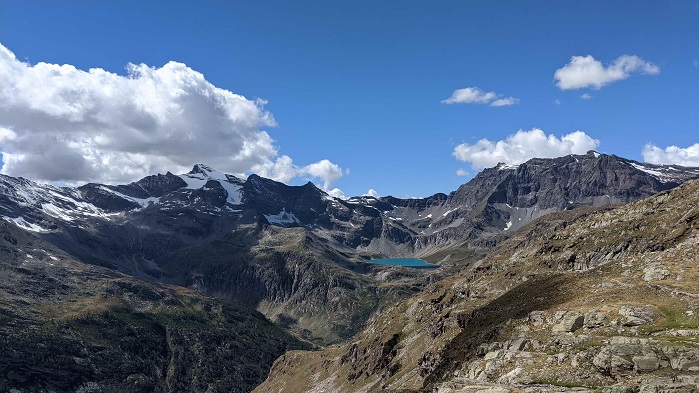
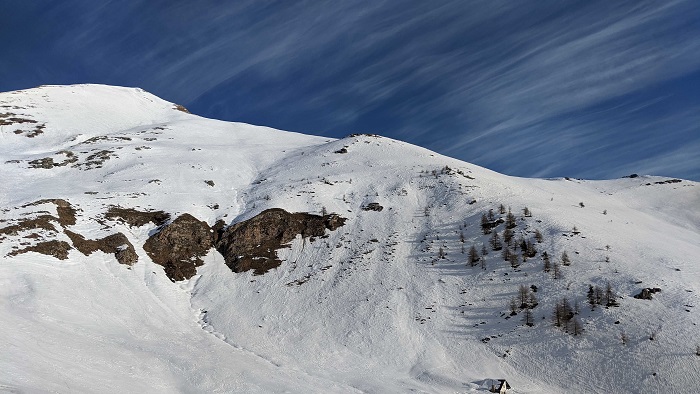
Project 177: Clean Cyprus Campaign
Project Objectives: Cyprus hosts a number of key nesting beaches of the endangered Mediterranean green turtle, yet they are the most plastic polluted on the planet, threatening its breeding. To prevent the plastics from becoming incorporated into the sand, constant cleaning is needed, as litter from a marine plastic hotspot constantly blows ashore. Beach cleans are becoming regular community events, but more work is needed at remote nesting beaches, and along the island’s trails network. Using its established platform and collaborating with international networks to record data on collected litter, the project will implement four youth camps in wilderness areas on the northern Karpaz peninsula, which is important for turtles but is also a major bottleneck for migrating birds and therefore very popular with birders, hikers and bikers. The camps will involve environmental education, work to improve trails and, together with an open call for locals and outdoor enthusiasts to get involved in day clean up events, will clear 80-100km of trails and beach of plastic.
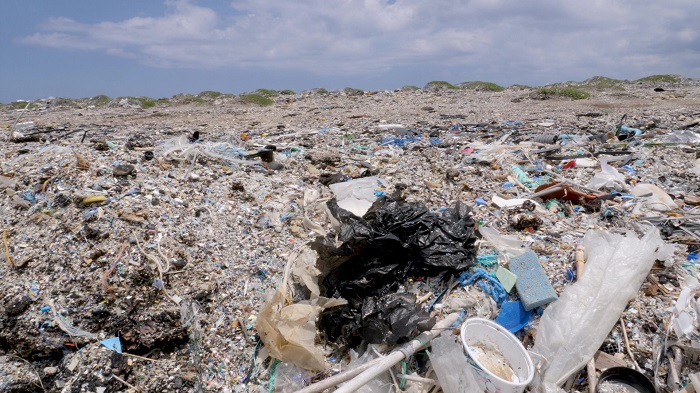
Project 183: Restoration of the most popular climbing areas in Krajina (Bosnia & Erzegovina)
Project Objectives: Krajina area is home to a rich collection of different ecosystems such as canyons, valleys, hills, mountains, meadows, rocky cliffs etc. The main focus of the project is the climbing sites which are threatened by increasing number of visits by climbers following the publishing of a local climbing guidebook. Lack of paths and access to crags has led to destruction of habitat, including the removal of trees, moving of boulders, damage to the fragile vegetation and nesting birds on the rock faces, lack of designated BBQ and open fire areas which has led to uncontrolled wildfire and the leaving of litter, much of it plastic. Working with local climbing groups and other visitors, this project aims to educate visitors and locals about their behaviour in the wild, and to protect wildlife through the installation of signs to inform climbers to avoid nesting birds, planting 1000 trees, collecting the trash along 15km of approach path, and developing more obvious, fixed trails.
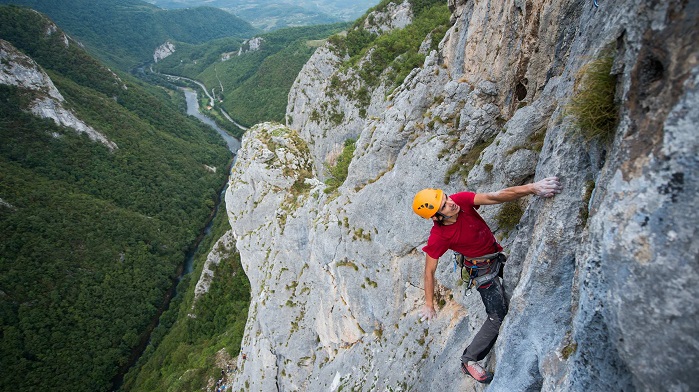
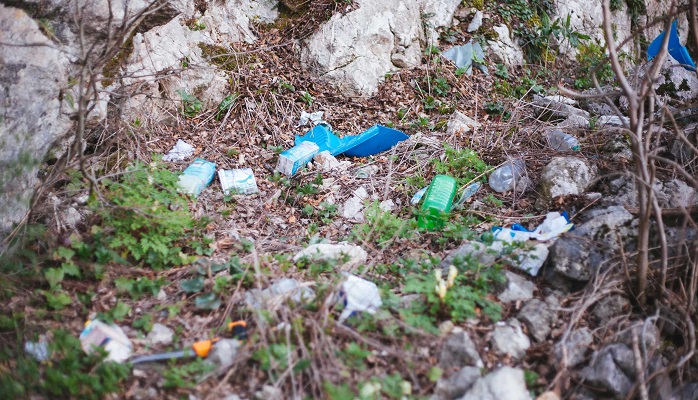
Project 189: Plastic Free Woodlands, UK
Project Objectives: Plastic guards are critical to enabling young trees to survive and thrive – acting as mini greenhouses and providing protection from browsing animals, weeds and herbicides until the tree is fully established. Following many decades of tree planting up and down the UK, there are now millions of plastic tree tubes littering the landscapes, most of which are made from single-use plastic. These disintegrate into smaller fragments and find their way into the soils and waterways. With UK Government commitments to plant an extra 30 million trees a year, this problem will only get worse over time. There are biodegradable alternatives to the plastic tree guard, but none yet that are financially viable, compostable and can effectively protect saplings for the required amount of time. This project will remove redundant tree guards over 8 hectares for reuse or recycling, engage communities and volunteers in tackling the problem, and plant 7,000 trees in 5 woodlands to trial alternatives to the plastic tree guard. It will also seek a sustainable solution through sector-wide collaboration, disseminating conclusions and recommendations nationally at the end of the trial.
